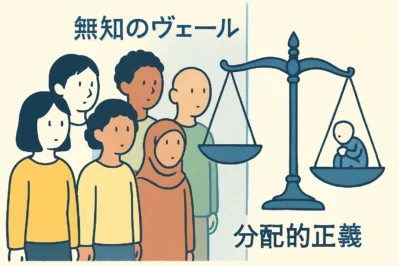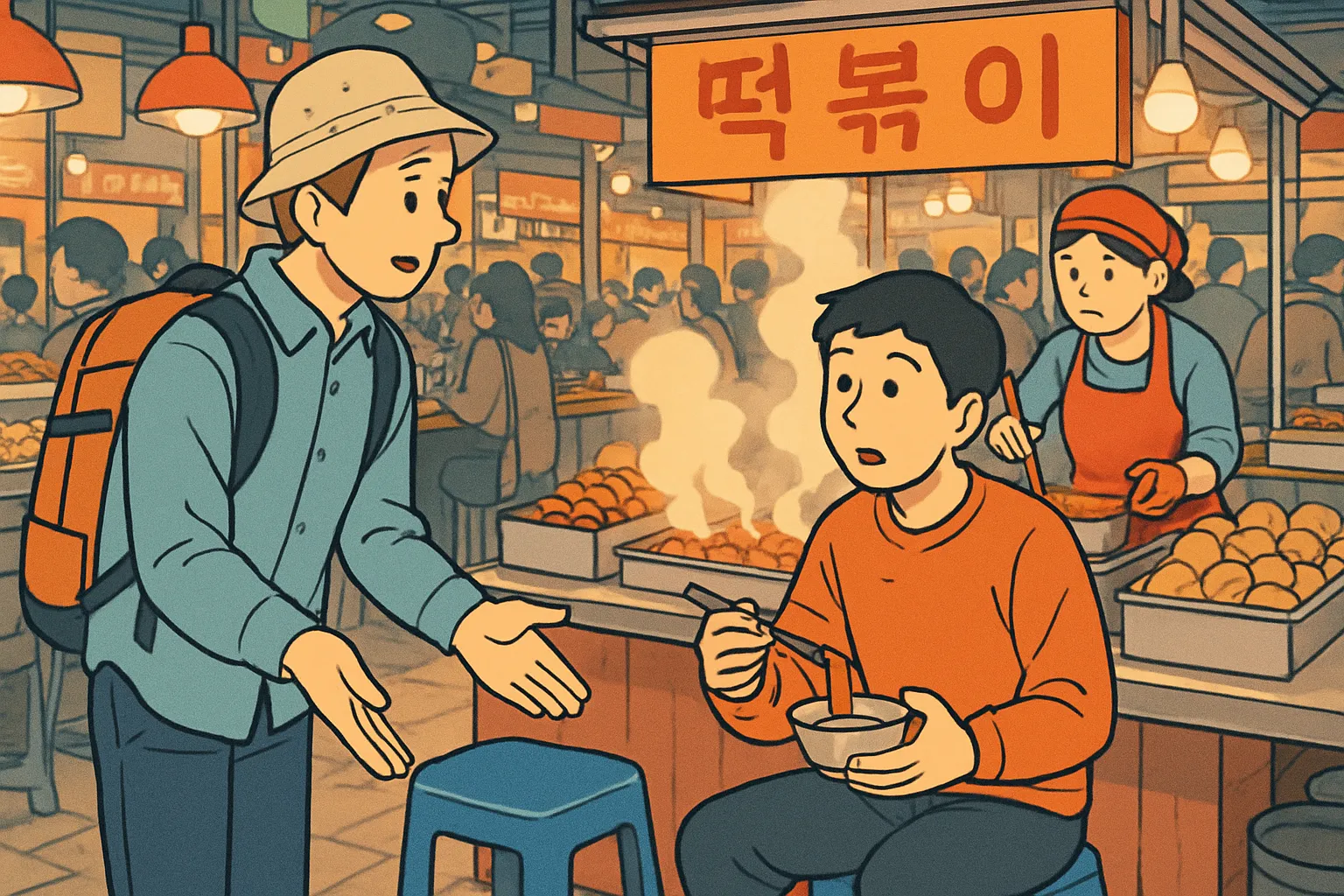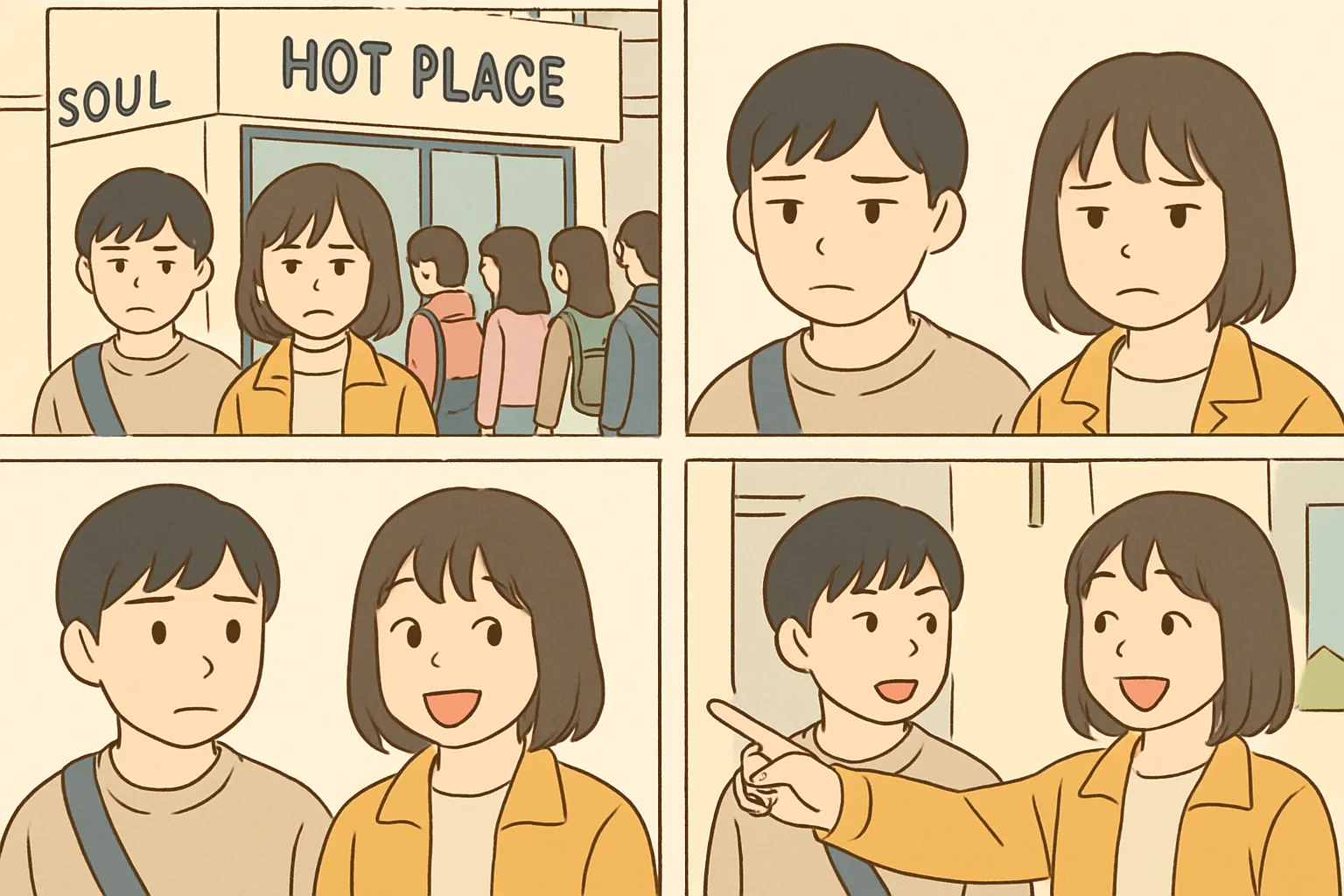Hello! This is [매일한글], here to upgrade your Korean skills to the highest level!
Today, we’re moving beyond everyday conversation and diving into the world of political philosophy. Sounds challenging? Don’t worry! We’ll be tackling John Rawls’s “A Theory of Justice,” a topic that is surprisingly relevant in modern Korea. Lately in Korea, the word ‘공정성’ (gongjeongseong – fairness) has become a major keyword in news, social media, and daily discussions, especially concerning issues like university admissions and job opportunities. By learning to discuss these topics with philosophical depth, you’ll be able to participate in some of the most important conversations happening in Korea today. Let’s get started!
Core Expressions for Philosophical Debate
Here are the essential terms you need to discuss Rawls’s ideas like a native intellectual.
- 한국어 표현: 분배적 정의 (分配的 正義)
- 발음 [로마자]: Bun-bae-jeok jeong-ui
- 영어 뜻: Distributive Justice
- 상세 설명: This is a core concept in political philosophy concerning the socially just distribution of goods, opportunities, and resources. 분배 (bunbae) means ‘distribution’ and 정의 (jeong-ui) means ‘justice’. This is a formal, academic term perfect for essays or serious discussions about societal fairness and economic policy.
- 한국어 표현: 무지의 베일 (無知의 베일)
- 발음 [로마자]: Mu-ji-ui be-il
- 영어 뜻: The Veil of Ignorance
- 상세 설명: This is Rawls’s famous thought experiment. 무지 (muji) means ‘ignorance’, and 베일 (beil) is the English word ‘veil’ written in Hangeul. The idea is that to create a truly just society, we must make decisions from behind a “veil of ignorance,” where we don’t know our own social status, wealth, talents, or identity. It’s a powerful and frequently cited concept in debates.
- 한국어 표현: 원초적 입장 (原初的 立場)
- 발음 [로마자]: Won-cho-jeok ip-jang
- 영어 뜻: The Original Position
- 상세 설명: This term refers to the hypothetical starting point where we stand behind the ‘Veil of Ignorance’. 원초적 (wonchojeok) means ‘original’ or ‘primordial’, and 입장 (ipjang) means ‘position’ or ‘stance’. It’s the initial situation of equality from which rational individuals would agree to the principles of justice.
- 한국어 표현: 최소 수혜자 (最少 受惠者)
- 발음 [로마자]: Chwe-so su-hye-ja
- 영어 뜻: The least advantaged / The minimum beneficiary
- 상세 설명: According to Rawls’s “Difference Principle,” social and economic inequalities are only justified if they benefit the 최소 수혜자, the most vulnerable members of society. 최소 (chweso) means ‘minimum’, and 수혜자 (suhyeja) means ‘beneficiary’. This term is crucial for discussing social welfare and policies aimed at reducing inequality.
Example Dialogue: A Coffee Shop Debate
Let’s see how these terms might appear in a real conversation between two university students discussing a recent news article.
A: 요즘 한국 사회의 ‘공정성’ 논란을 보면 정말 복잡한 심경이 들어. 기회의 불평등 문제가 너무 심각한 것 같아.
(A: Seeing the recent ‘fairness’ controversy in Korean society gives me such complex feelings. The problem of unequal opportunity seems so severe.)
B: 맞아. 이런 문제를 생각할 때마다 존 롤스의 분배적 정의 이론이 떠올라. 사회의 부와 기회를 어떻게 나누는 것이 과연 정의로운가에 대한 근본적인 질문이잖아.
(B: I agree. Whenever I think about these issues, John Rawls’s theory of distributive justice comes to mind. It’s a fundamental question about how to justly divide society’s wealth and opportunities.)
A: 아, 그 원초적 입장에서 무지의 베일을 쓰고 사회 계약을 맺는다는 개념 말이지?
(A: Ah, you mean the concept of making a social contract from the original position, while wearing the veil of ignorance?)
B: 바로 그거야. 그 이론에 따르면, 우리는 결국 사회의 최소 수혜자에게 가장 큰 이익이 돌아가는 시스템을 선택하게 될 거래. 현재 우리 사회가 과연 그런 방향으로 가고 있는지 의문이야.
(B: Exactly. According to that theory, we would ultimately choose a system that returns the greatest benefit to the least advantaged in society. I question whether our current society is really heading in that direction.)
Culture Tip & Deeper Dive into the ‘Fairness’ Trend
The concept of ‘공정성’ (gongjeongseong) is arguably one of the most significant social keywords for the Korean MZ Generation (Millennials and Gen Z). Why? Decades of hyper-competition in education (입시 전쟁) and the job market (취업난) have created a deep-seated sensitivity to any form of perceived unfairness, whether it’s nepotism or systemic inequality.
When you engage in a discussion about this topic, simply saying “it’s unfair” (불공평해요) is an intermediate-level response. However, by introducing a framework like Rawls’s, you elevate the conversation. For example, you could say:
- “이 문제는 단순한 공정성을 넘어 분배적 정의의 관점에서 접근해야 합니다.”
(This issue must be approached not just from the perspective of simple fairness, but from that of distributive justice.)
Using these terms shows that you have a deep and nuanced understanding of the cultural and philosophical underpinnings of modern Korean social debates. It will surely mark you as a truly advanced and thoughtful speaker of Korean.
Wrap-up & Practice
Today, we equipped ourselves with the sophisticated vocabulary needed to discuss political philosophy and the crucial topic of ‘fairness’ in Korea. We learned about 분배적 정의 (distributive justice), the 무지의 베일 (veil of ignorance), the 원초적 입장 (original position), and protecting the 최소 수혜자 (the least advantaged).
Now, let’s put your knowledge to the test!
- Fill in the blank:
롤스의 정의론에서 가장 핵심적인 사고 실험은 바로 ‘OOO OO’을 쓰고 합의에 이르는 과정이다.
(In Rawls’s theory of justice, the most central thought experiment is the process of reaching an agreement while wearing the ‘___ ___’.) -
Short sentence practice:
Using the term 분배적 정의, write one sentence expressing your opinion on what a government’s role should be in the economy.
Share your answers and thoughts in the comments below! We’d love to hear your perspective using these new, powerful expressions.






